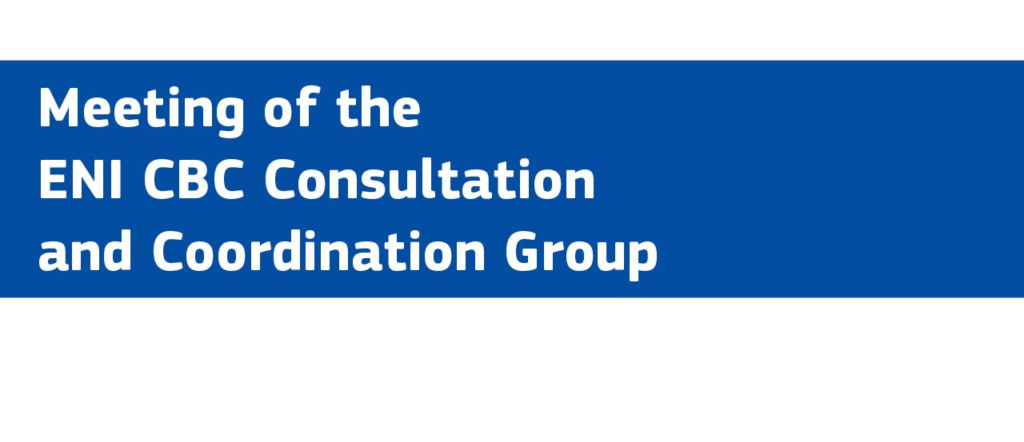A programming cycle against all odds:
what have we learnt from ENI CBC?
The 7th meeting of the ENI CBC Consultation and Coordination Group will take place in Brussels on 23-24 November. The meeting aims at taking stock of the lessons learnt during the programming period 2014-2020, paving the way to its timely closure, and to set the ground for the start-up phase of Interreg NEXT. Throughout the two days, programmes will also have the chance to exchange bilaterally with Commission representatives about their current state of play. Most important, the meeting will be an opportunity to reinforce the community spirit after these very difficult last two years.
When all neighbourhood cross-border cooperation programmes last met on 18 February 2021, the most echoed word was ‘recovery’. Nobody would have imagined back then what the future had reserved to the community roughly a year afterwards. Coping with the devastating effects of the Russian aggression on Ukraine and ensuring programme and project implementation have been at the centre of the outstanding efforts deployed by all stakeholders during the last months. The adoption of an ad-hoc legal act, addressing the many aspects linked to this disruption, is a landmark likely to reach its final stage by mid-November, right before the ENI CBC Consultation and Coordination Group meeting will be held.
This is the general background, and there are several reflections linked to the current moment in time that the meeting proceedings will cover. To start with, it will be necessary to take a look at the current state of play, aggregating facts and figures on the implementation of programmes, showing that against all odds the community remains resilient and has never stopped delivering positive effects for the benefit of the populations in the border regions. The major risks related to programme performance will be shared and analysed, so that we are all ready to face the next endeavour: the closure of ENI CBC programmes. On this topic, the European Commission will share the main concepts behind the draft closure guidelines and will present their structure.
On the way to closure, it is important to identify and promote the many achievements that these programmes have managed to deliver despite the different crises they have and are navigating through on a daily basis. It is likewise essential to draw lessons that can be taken onboard in order to improve the new programmes that are about to start implementation. Individual lessons do exist, and they will be highlighted during one of the sessions, but there is also room for lifting up the reflection a notch and analyse them from a community angle. This is particularly the case when it comes to the ways in which the cross-border dimension of the projects has been fostered at design stage and then assessed during the evaluation of the received proposals. Is there room for improvement concerning this aspect? Always! But the standards are already high.
A very specific feature of our programmes, the large infrastructure projects, will also be in the agenda. For this, TESIM will share the results of the external review of this type of projects which we initiated late last year, concluding its field phase early February. COVID limitations allowing, 21 of these projects have been visited and assessed on the basis of an adapted version of the result-oriented monitoring methodology. Many aspects have been scrutinised, from the project design to the sustainability of the results, passing through the capacity to foster complementarities with other initiatives existing on the territories and the reactivity face to the many risks which partners have encountered during implementation. What does the final appraisal tell us? We are not going to anticipate anything at this stage, but the exercise has shed a very positive light, breaking many myths historically associated to these projects.
On 3 November, the first Interreg NEXT programme was adopted! Our sincerest congratulations to the colleagues of Hungary-Slovakia-Romania-Ukraine. With a budget of over 66 Mio€, the four participating countries will work together for equal access to health care and more resilience of their health systems. The programme will likewise support sustainable solutions for climate change adaptation and disaster risk prevention, cooperating also to protect nature, promote green infrastructures and enhance sustainable tourism. Building on this very positive note, and considering that the adoption of others will follow before the end of the year, the second day of the meeting will be devoted to the preparation of the new generation of programmes. The upcoming priorities are many: setting up programme structures, ensuring the application of the partnership principle also during implementation and, what promoters in the field are most eager about, the launch of the first calls for proposals. In parallel, the negotiation and signature of the Financing Agreements will need to be ensured, and the draft template will be presented. In this overall context, the political priorities stemming from the EU relations with Ukraine and the Republic of Moldova represent a cornerstone in this historical moment, and the ways neighbourhood cross-border can efficiently contribute to them will be assessed during the last session.
It is a timely meeting. No doubt it will be a dense one too, full of insights on both practical and strategic aspects. By the end of the two days, we will have learnt more about where we stand as a community, what we have achieved and what we are yet to achieve in spite of the uncertainties linked to the future of some of the programmes. Another chance, hopefully not the last one, to make a toast all together to the success of neighbourhood cross-border cooperation!
